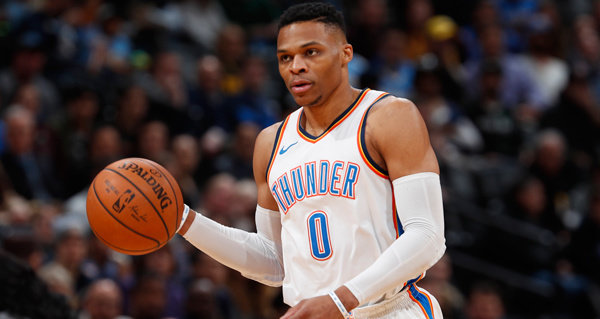Almost everybody in the NBA can do every basketball thing. Six-foot-nothing guards mess around with hook shots in practice. Big doofusy centers can throw a behind-the-back pass. Behold: Ben Simmons, who has taken 17 three-pointers in his professional career and missed all of them, nailing nine consecutive long-rangers in an empty gym. Players limit themselves in games not because they’re objectively terrible at everything they don’t do, but because they can’t do it at an NBA level. Maybe you can kind of shoot, maybe you can kind of post up, but more often than not, if you’re a professional player who can only kind of do something, you have a couple teammates who are world-class at it, so you let them handle that particular task. Joe Harris could probably run the Nets offense in a pinch, but he would be quite bad at it compared to D’Angelo Russell and Spencer Dinwiddie.
Role players get invited to the bench if they venture too far from their strengths. Stars get more leeway, but even they get a talking to here and there if the coach thinks they need to settle down and play within themselves. Then there are a handful of dudes around the league who never get told what to do: LeBron, Steph, Harden. They’re allowed complete creative freedom because they don’t really have limitations. If they think they can do something, they’re probably right, or they’ve at least earned the license to give it a try. Is a running one-handed bank shot the most reliable tool in LeBron’s arsenal? No, but he drained one to win a playoff game, so whatever, let the man follow his muse.
Russell Westbrook is a second-tier star with first-tier privileges. This isn’t a novel point because nothing said about him possibly could be: he uses his superstar mandate to do way too many stupid things. For instance, he shouldn’t shoot threes. He certainly can—there are contests in which he hits four or five of them—but he’s 30.8 percent from beyond the arc for his career and has only posted a respectable percentage (34.8 percent) in one of his 11 NBA seasons. He’s a pretty terrible defender, in part because he exerts himself so hard on the other end of the floor and in part because he doesn’t have the patience to quietly do a job. If he’s not engaged in a spotlight assignment in the fourth quarter, you can likely find him hunting steals or blowing a rotation.
These are the easy knocks on Russ. Everything else is contextual. He either lacks a feel for the game, or he wilfully ignores it. He’s a terror in the lane and has great court vision, but there are times when he’s bitterly determined to make it work—when the paint is too packed to drive, when a defender is in the passing lane and Russ seems to think I’ll just whip it right through him. He doubles down on failure. If Russ has just committed his third turnover of the quarter, he practically seeks out a fourth. It has to do with his ideas about weakness. He conflates restraint with quitting; clanking one 18-footer and not taking another would be admitting defeat.
Which is why nights like Tuesday's Game 2 happen. With Dame Lillard feeling it for a second straight game, and even getting a little chippy with Russ toward the end of the first half, Westbrook was assuredly going to try a bunch of harebrained stuff that he can’t pull off with any sort of consistency. He meets every challenge and that’s where he locates his identity: he is a man who does not back down. Thus, Game 2: 14 points on 5-for-20 shooting, 11 assists against six turnovers, one-for-six from three-point range. Russ stayed aggressive. He played with defiant stupidity.
He could have a monster performance in Game 3. That’s always a possibility with Russ. At the absolute peak of his powers, he is every bit as good as the very best players in the league. But he just can’t do it often enough, and at some point, inefficiency loses out.
Russ doesn’t understand this—doesn’t want to, hasn’t been made to. The regular season stat-chasing isn’t a big deal by itself, but it’s indicative of a larger problem. So his teammates let him walk into a few extra rebounds every night. Who cares? But if reporters ask him about it, he gets furiously indignant. How dare you accuse him of doing the thing that he’s obviously doing. The guy lives deeply inside his own nonsense, in part because nobody in Oklahoma City is ever going to correct him. They’re not in a position to do so. Russ is The Good Son, who chose to stick with the Thunder when he could have gone anywhere else. He is, in his fiefdom, insistently himself—all or not at all.
We all know the effects of this. We watch Russ roar and rage and overcome, and we watch him nuke his team’s chances by stepping into a crunchtime three with 15 seconds left on the shot clock. The first thing is thrilling. The second, which is almost always how his seasons end, is tedious and aggravating. It’s not a mystery how he got to be this way, and it’s not a question whether he’s ever going to reform his game. As spectators, we can only fantasize about what he could become, if he were wired differently. Russ? He’s dreaming too, but he thinks he’s awake. He believes something is going to change, and that he doesn’t have to.



